Attendings & AHA Certifications

AHA Every Two Years
I have been an AHA instructor for about 4 years now. I can honestly say that most days I love to teach, but like most people, I have certain groups that I prefer. My favorite classes tend to be heavy with advanced practitioners and doctors – oh, and I love teaching residents. AHA material can get dry after a while, but a great practitioner can be a walking and talking reference manual for my recertification courses; full of facts, able to cite pertinent studies from memory and, at least in my experience, most are willing to drop some awesome pearls for the benefit of the other members of the class.
But not all classes are a pleasure to teach. Recently I taught a PALS class that didn’t go so well. One of my favorite EM docs had a group of 3rd year residents that required a short notice recertification. A multitude of factors made this class less than ideal, but the attending and the training center both bent over backwards to accommodate the graduating residents. Let’s just say that it was a less than positive experience. The only question during the class was “how long is this going to take?”. The students chatted through the video material, generally tried their hardest to not pay attention, and engaged in such loud side conversations during lecture that I had to ask them to stop multiple times. It was, to say the least, a very disappointing class.
But here is the thing: I get it. Doctors spend residency being grilled and challenged and tested and pushed. These particular residents have studied under incredible doctors and have done rotations at one of nation’s leading children’s hospitals. They are eager to move on to new attending jobs, they are exhausted from years of outrageous study, and have (nearly) completed the almost super-human task of becoming a licensed physician in the US. Beyond their level of training and preparedness, there is also the fact that AHA courses are, unfortunately, just another merit badge class. Hospitals use these courses to create the convenient situation where the hospital can outsource provider training and therefore all liability and responsibility. Why spend time and money investing in staff education and training when the AHA gives out these fancy cards? I get it – it can really feel silly taking
So why in HELL do my outrageously overqualified doctors need to take ACLS and PALS? Who thinks this is a good use of time?I’ve created a checklist. It isn’t exhaustive and it’s just my opinion, but if you are a graduating resident, or even an attending, and you can only be dragged kicking and screaming in order to recertify PALS or ACLS, perhaps this list might help put these AHA classes in a different perspective.
#4 – You Know What They Say About Assumptions…
I love my residents. They are smart. They are incredibly motivated. And most of all they tend to have a sincere passion for medicine. But not every doctor I’ve ever recertified has been well rounded. I wish I could say that docs don’t need this stuff, but unfortunately there are some attendings out there that haven’t really studied this material in years. I’ve been in codes with docs who do some downright goofy stuff. I’ve had residents shoot me incredulous looks while we try to pace asystole or take 5 minutes to sono a coding patients heart – all under the orders of an attending. So no, we can’t assume doctors are proficient in AHA standards and you can’t skip the class – even doctors should be reminded of the ECC standard every two years.
#3 – Sharing Is Caring
This is especially important if you are one of the few, or the only, doctor in the classroom. Not everyone has your education, knowledge and experience. Please be a positive resource to the rest of the class! As mentioned earlier, the AHA material can get pretty dry. If you have a good story that pertains to the information being taught, please chime in. Some of the best and most memorable teaching moments have come from doctors telling the class how something works, or doesn’t work. Assist the instructors with some of the material – for crying out loud help make this stuff interesting! You have better stories than us. Please share and make this a great educational experience for everyone.
#2 – Times They Are a-Changin’
The AHA guidelines are updated every 5 years. But our field changes daily. This is a fantastic opportunity to sit down with your fellow doctors and review basic guidelines. If the guidelines are similar to your practice than great! Let’s discuss the evidence in support of the AHA benchmarks, and even better, lets discuss why we don’t do what we may have done in the past. But sometimes things change faster than the AHA can keep up with. Pediatric therapeutic hypothermia anyone? Why or why not? Antibiotics for pediatric sepsis? But of course – but what cocktail are you using? How much, at what point, and what are the other options? These classes are an incredible opportunity to hone your skills. The resident class I taught argued with the PALS recommendation for fluid resuscitation for pediatric cardiogenic shock. One of the students went so far as to say that fluid was stupid and that dopamine was the only serious option. Maybe that is true, but maybe there are other opinions in the room. Is there controversy right now about dopamine versus norepinephrine in shock patients?* If you are too busy proving you are too smart for the AHA course material, we won’t ever get to opportunity to have some pretty important discussions.
#1 – It’s Not All About You
This is the most important thing to remember: the standards set forth by the AHA may seem simple, pedantic, or even incorrect to your well-educated medical mind, but this is what all of your nurses, NPs, and PAs know as gospel! Your education and experience doesn’t mean you’re beyond AHA standard – it actually means you are responsible for the entire resuscitation team’s grasp on the AHA standards. Stop recertifying AHA courses with the idea that the instructor is only here to test you out on your skills. You’re an attending. You think I’m impressed that you know that ventricular fibrillation needs defibrillation? Of course not. Take this recertification course as an opportunity to sit down and think about your team. This isn’t an 8-hour recertification class for you – this is a course where you get to familiarize yourself with your staff’s training standards. I know these classes may seem pedantic to you, but this might be the most cutting edge resuscitation science your nursing staff has ever been exposed to. Don’t like what you see? Fantastic! Ask me why the AHA isn’t talking about dual sequential defibrillation for VF electrical storm. Ask me about ECPR. Let us discuss where the AHA gets it right and where you think it might get it wrong. These classes offer you the opportunity to see how your staff is being trained. Don’t like what you see? Fine – take the class and then go talk to your nurse educator and come up with a plan on how to expand the curriculum. But you have to take the class. I get that the videos are boring, and I know you’ll pass the test and breeze through the mega codes. But you have an opportunity here to be a great healthcare leader so take it – you owe it to your patients, and you owe it to your team.
